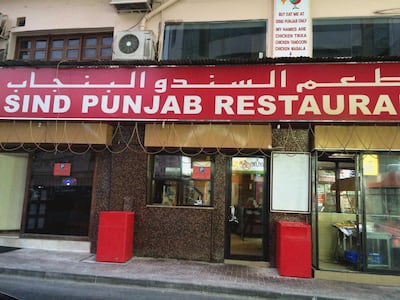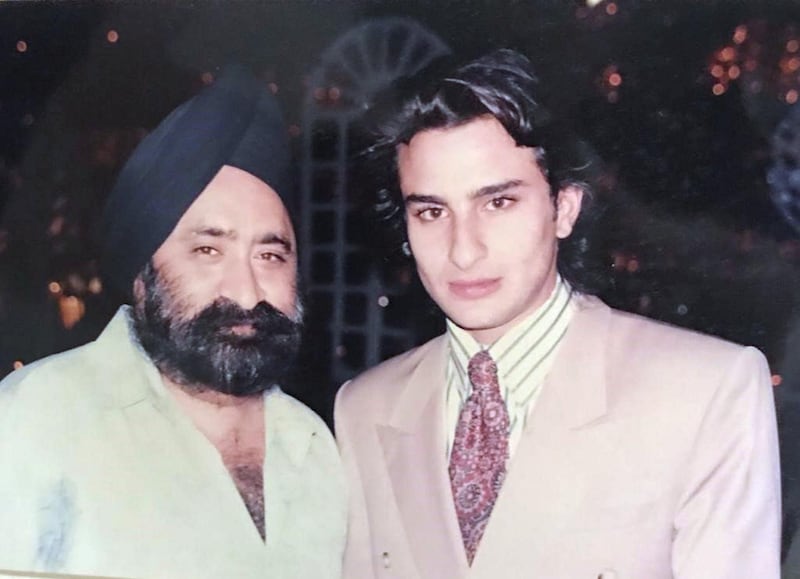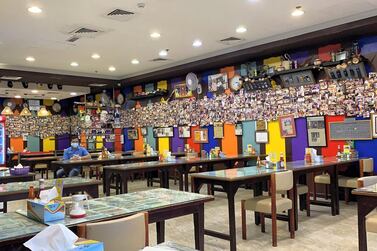In a new series, we talk to UAE food institutions that have been serving customers for decades about these unprecedented times...
Old Dubai is known to be brimming with Indian restaurants for all palates and budgets alike.
But when Sind Punjab restaurant opened in 1977, it was among the first to serve Indian Mughlai cuisine, and quickly became a hotspot for its butter chicken, dal makhani, pani puri and sweets such as kulfi and falooda.
The family business gained popularity for being one of the only restaurants at the time, to stay open until 3am, serving customers piping hot food late into the night.
Sind Punjab also became a celebrity favourite, despite being a hole-in-the-wall spot. Over the past four decades it has been visited by Bollywood stars such as Sunil Dutt, Sanjeev Kumar, Rakesh Roshan, Raj Kapoor, Aishwarya Rai, Salman Khan and Saif Ali Khan.
“We used to play cricket matches on the television and the restaurant used to be so packed, with people lining up outside,” reminisces Gurvinder Singh, managing partner of Sind Punjab, who is also fondly called Pappi Singh by customers. “People actually began to call us for the cricket scores.”
However, packed venues now seem like a thing of the past during the coronavirus, which has been disastrous for restaurants around the world. Sind Punjab which, just last year, used to serve as many as 300 customers daily, is currently only doing 10 to 15 per cent of its usual sales, says Singh.

"Things have been very bad. This has been the biggest challenge we have ever faced,” says Singh. “We’ve had a long legacy. We have seen the Gulf War, the Iraq War unfold, and even then we were getting customers. This is the worse that we have ever been hit.”
One of the reasons the restaurant has been so badly affected is because it sells food for nominal costs. When it first began, a portion of dal used to cost Dh3. Even today, the vada pav costs Dh4, the chaats are under Dh8, and the restaurant's famous butter chicken is priced at Dh24. Singh says the restaurants have gone through many lengths not to hike up prices beyond general inflation in its 42-year-old history, which he credits as one of the reasons they have such a loyal fan base. However, this also means it operates with low profit margins.
"Our biggest challenge has been to provide the same quality food at the same prices," says Singh's son Rimpy Arneja, who founded the restaurant chain Patiala House.
Sind Punjab employs around 100 people, and Singh says they will not be letting go of any of them, as many are the sole breadwinners for their families in India. However, he adds that they have had to cut work hours as the restaurant is not operating under full capacity.
“The time has come that we are paying from our savings,” says Arneja. “All profitability questions have gone out the window. But our employees have been loyal to us. We are doing as much as we can, but we don’t know how long this will carry on or when this will end.”
Despite going through difficult times, the family is still going out of their way to help others.
This month, Patiala House partnered with Danube to distribute 100 meals to people in need. Arneja and his mother are also distributing meals at construction sites as part of a charitable initiative.
If customers are looking to help, there isn't too much more than can do other than call the restaurant directly to order so that they won't have to pay commission to aggregators.
Arneja adds that, in the current scenario, customers should also still have a little faith in them.
“Even now, a lot of people are scared to dine in. We want them to have faith that we are maintaining our kitchen, having strict hygiene standards, making sure all delivery men and chefs are wearing masks and gloves, and making sure food quality has not changed,” he says.
"There are undoubtedly tough times – we all have to stay at home as much as possible. Try to co-operate with the government and stay healthy," adds Arneja. "In the meantime, our doors are open. We are waiting for the restaurant to be packed again in the future."








